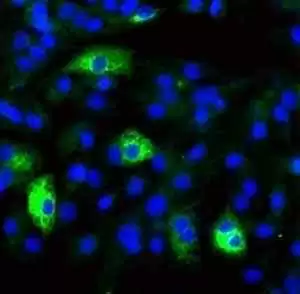Celiac.com 09/12/2013 - There is evidence that certain types of gut trauma can trigger celiac disease, but almost nothing is know about whether traumatic brain injury might trigger a neurological form of celiac disease in some individuals.
 TG6 is a brain expressed form of transglutaminase that seems to be connected to neurological expressions of celiac disease.
TG6 is a brain expressed form of transglutaminase that seems to be connected to neurological expressions of celiac disease.
Celiac.com Sponsor (A12):
Researchers Jonas F Ludvigsson and Marios Hadjivassiliou wanted to test the hypothesis that earlier brain injury due to head trauma may be more common in patients with celiac disease, potentially through trauma-induced TG6 leading to interaction with TG2.
Ludvigsson and Hadjivassiliou are variously affiliated with the Department of Pediatrics at Örebro University Hospital in Örebro, Sweden, the Clinical Epidemiology Unit, Department of Medicine at Karolinska Institutet in Stockholm, Sweden, the Division of Gastroenterology and Hepatology at the Mayo Clinic College of Medicine in Rochester, USA, and with the Department of Neurology at Royal Hallamshire Hospital in Sheffield, UK.
For their study, they used biopsy reports from all 28 pathology departments in Sweden to identify 29,096 individuals with celiac disease, which they defined as the presence of villous atrophy.
They then assessed the risk of earlier head trauma in celiac disease patients compared to the risk in 144,522 controls matched for age, sex, county and calendar year. They used logistic regression to calculate odds ratios (ORs).
They found that a record of earlier head trauma in 981 (3.4%) patients with celiac disease, and in 4,449 (3.1%) control subjects.
People who had suffered from head trauma showed a 1.10-fold increased risk of future celiac disease (95% CI = 1.02-1.17); independent of sex or age at celiac disease.
The highest risk of future celiac disease was seen during the first year after trauma. There was no connection between severity of trauma and risk of developing celiac disease.
These results show a very small excess risk for future celiac disease in individuals with an earlier head trauma.
Source:
- Open Original Shared Link






Recommended Comments